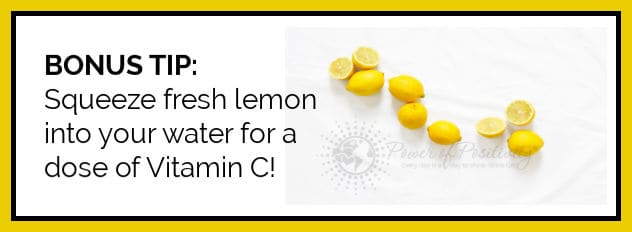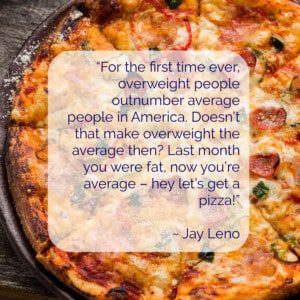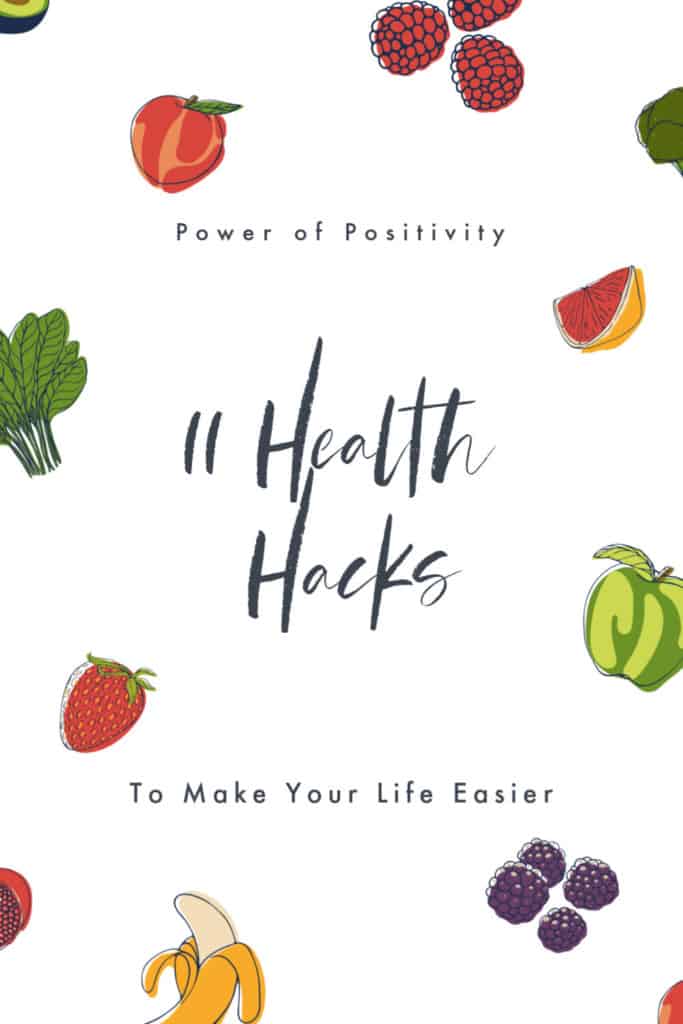Learn about brain health and nootropics to boost brain function
11 Health Hacks to Make Your Life Easier

A hack is any simple act that supposedly carries with it tremendous benefits – a shortcut if you will. For a hack to be a hack, it must require relatively minimal cost, effort, and time. Therefore, health hacks will make you healthier and save you time.
We’re going to add one more requirement for the purpose of this article. Any hack mentioned here must be backed by science.
Why? Because this article is about health and self care. While there is certainly a place for home remedies and complementary medicine, when it comes to health applications, there must be at least a modicum of proof. At least here.
One look at the “health hacking” landscape, and it’s clear why evidence is necessary. Per an article published in the New York Post, Americans devise and partake in nearly 20,000 hacks over their lifetime. Some of these hacks are legit: eating more fruits and vegetables, limiting sugar intake, etc. Others, well, not so much.
In this article, we’re going to focus on health hacks. These hacks are promised to do three things: (1) make you a healthier person… (2) … with less time and effort, and (3) make your life easier!
So let’s get to it!
Here are eleven health hacks that will help make your life easier:
Get a water bottle with a wristband

Yeah, you know what we’re getting at here! You resolve and promise to drink more water, but you don’t. Well, most people don’t: about 75 percent of Americans are chronically dehydrated.
It’s not like people don’t try. But we can only keep so many things on our mind at once. And we’re terrible at remembering where we put things. Hence, the need for a wristband. It’s kind of hard to ignore something when it’s latched to your arm – just ask any whining child.
We’ll even give you permission to unlatch yourself once you get into the water-drinking habit! (You’re welcome!)
All joking aside, water is critical for every cell in your body to properly function.
As a reminder, it’s necessary to drink a minimum of 64 ounces of water per day. The average water bottle is between 12 to 16 ounces.

Give your Joe a dose of coconut oil
You love your morning coffee; us too.
What we don’t like is the irritation and the inevitable caffeine crash that comes with it. Enter (unrefined, organic) coconut oil.
Thousands of studies have been done on the benefits of coconut oil. Here are just a few science-backed benefits:
- Boosts HDL (“good”) cholesterol levels
- May improve cognition in Alzheimer’s disease (AD) patients
- May accelerate fat burning
- Reduces the risk of neurodegenerative diseases, e.g., dementia/AD
The only drawback to using coconut oil is its amount of saturated fat. As such, coconut oil should be used wisely and in conjunction with a balanced diet and exercise plan.
Eat a little slower
Here’s the thing: the mind is always in a rush. Have you ever noticed how people are always in a hurry when they’re driving? Even when they have no place to go, drivers will honk and scream at anyone who dares, well, drive.
Some of this attitude carries into how we eat. That is, we have a strange tendency always to want to scarf down food. It’s not good for anyone.
Per a 60,000-person study published in the British Medical Journal, ‘slow’ eaters were 30% less likely to be overweight and 42% less likely to be obese.
Use smaller serving dishware and silverware
Using smaller sized serving plates, bowls, and silverware likely cause you to eat less. It could have everything to do with how your brain perceives food.
In a dual study conducted by researchers at Kent State University in Kent, Ohio, participants who used a portion-control plate served themselves proportionally less food than did others. Unfortunately, the researchers note, all study groups underfed themselves vegetables! Which leads us to the next point…
Eat your veggies, son!
Okay, okay, so this fifth one may seem more like a common-sense tidbit than a hack. But we’re going to put it here, anyways. How is eating vegetables a hack, you ask?
Firstly, most vegetables are very cheap. Secondly, they’re very simple to prepare and consume. Last, we drastically underestimate their benefits.
‘Cruciferous’ vegetables like broccoli, cabbage, and kale, in particular, are exceptionally healthy. Research shows that these veggies:
- reduce cancer risk
- reduce heart disease risk
- expedite weight loss
- curb obesity
Put the phone away
Take your face out of your phone screen – at least until you finish your meal. It turns out that mindful eating is a much healthier option.
In a study published in The American Journal of Clinical Nutrition, researchers tested how the manipulation of attention, awareness, distraction, and memory had on food consumption.
After reviewing 24 studies, the results showed that when people are distracted by media, they eat, on average, 39 percent more. Worse, they continued to overeat throughout the day.
Balance your plate
Many Americans aren’t too good at managing their health. A big reason for this is that we just don’t eat very well – and it’s not just the U.S. According to a 27-year global study on countries dietary habits, approximately one in five deaths is because of poor diet.
The study cites excess sodium and sugar as well as too much processed and red meats as one reason. The other: a shortage of fruits, nuts, seeds, and whole grains.
Set or reset your sleep/wake cycle
Despite all of the great things we’ve given the world, it sometimes feels like we Westerners just don’t get it. Especially when it comes to health and wellbeing, including sleep.
Per a survey of 20,000 Australians, just 12 percent report waking up feeling “refreshed.” Three-quarters admitted to having difficulties sleeping.
This is bad. Research continually shows that poor sleeping habits are linked to “serious medical conditions, including obesity, heart disease, and diabetes –and it shortens your life expectancy,” according to the U.K. National Health Service (NHS).
Try Tabata
It’s almost as if we can never squeeze enough minutes into a day, right? Our stressful lifestyles lead us to neglect essential elements for health, including proper exercise.
Enter the Tabata Routine (formally: the “Tabata Protocol.”)
Per a 2013 article published in the Journal of Sports Science and Medicine, just four minutes of Tabata’s workout results in a 28 percent increase in anaerobic activity.
Blood lactate levels from a 20-minute Tabata workout suggest accelerated calorie-burning compared to other forms of aerobic activity.
Get out in nature
Per a study conducted at Chonnam National University in South Korea, viewing images of natural landscapes makes people happier.
Functional magnetic resonance imaging (fMRI) scans of study participants showed increased activity in the brain regions known as the anterior cingulate gyrus and the basal ganglia. The former is associated with emotional stability and a positive outlook. The latter may be where the recollection of happy memories occurs.
Meditate for 15 minutes (or more!)
It’d be foolish not to include meditation in a health hacks article. Over 44,000 studies have been conducted on mindfulness-based meditation practices alone. Research continues to prove the myriad benefits of meditation, including:
- better quality sleep
- enhances concentration
- emotional resilience
- feelings of vitality and vigor
- mental clarity
- emotional stability
- improves performance
- better stress management
- reduces the risk of cancer and disease
- better pain management
- controls anxiety
- enhances self-awareness
- reduces risk age-related memory loss
Final Thoughts: Time to wake up

Ready for a (not-so) shocking fact? The average American doesn’t begin to take their health seriously until the age of 41. For 65 percent of those who eventually do, a potentially life-changing medical problem serves as the catalyst.
Health hacks can most certainly help. Especially the ones that we’ve included in this article.
But as helpful as health hacks are, they do nothing if they’re not put into practice. Therein lies the problem that seems to plague so many of us. Many of us resolve to make better choices, eat healthier, and so on, only to allow the hecticness of life to detract us from self care.
Personal health management is not just a matter of life and death, but of wellbeing.
Also, though we don’t give it much thought, proper health is a matter of legacy. If the childhood obesity statistics are any indication, we’re failing miserably.
It’s time to start thinking about the legacy we wish to leave behind. Are we going to educate our youth on proper nutrition? Make sure that our kids are eating healthy? Take away the iPad and point towards the yard?
If not, the obesity epidemic and other adverse health trends will not only continue but worsen.
Time to wake up.

Click here to view full article